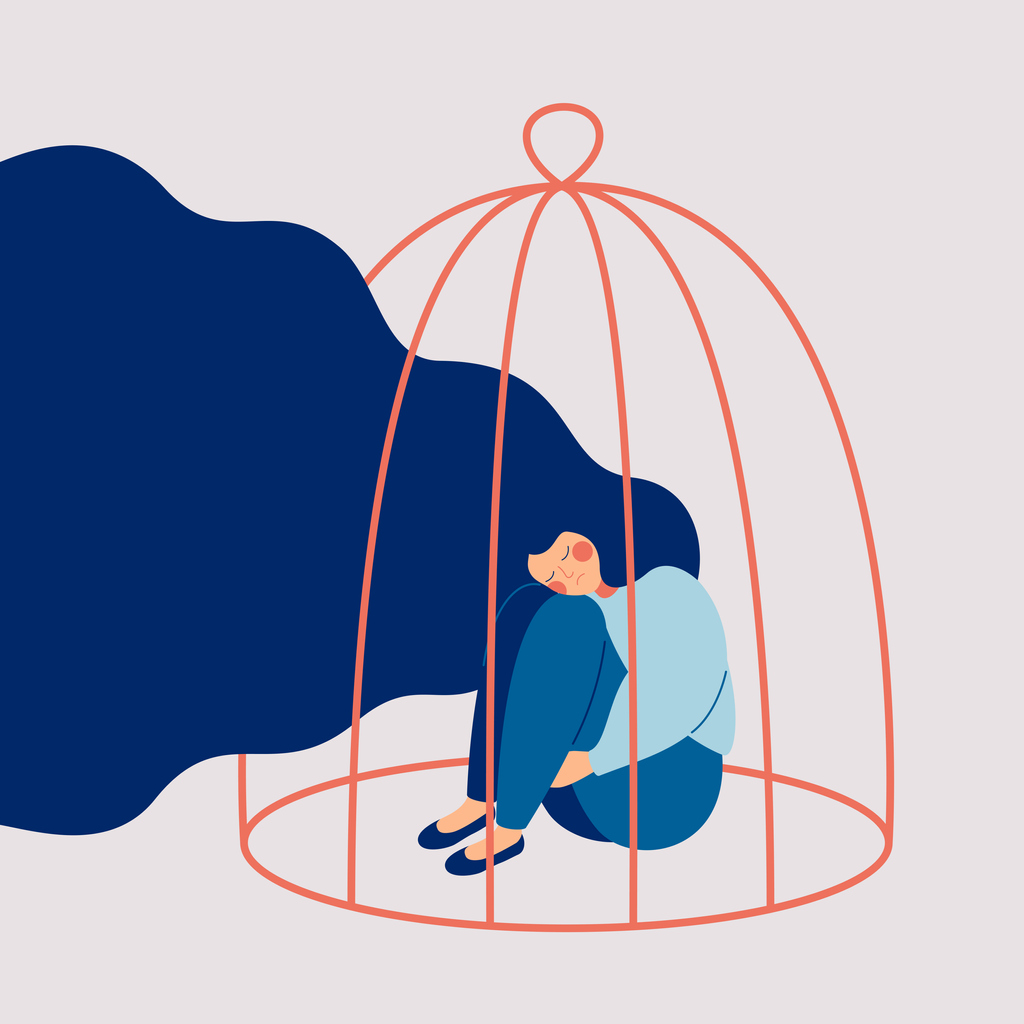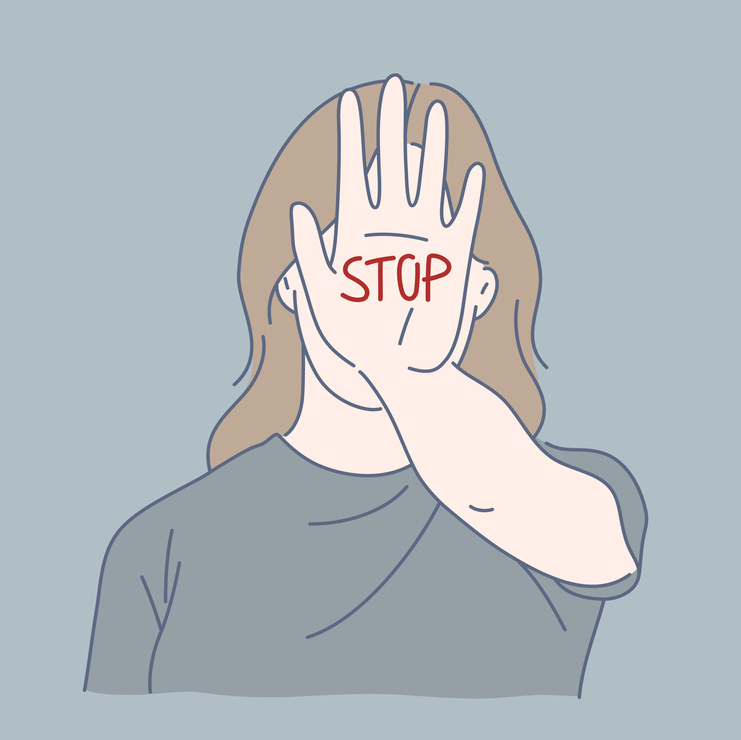
A New COVID-19 Crisis: Lockdown and Intimate Terrorism
Editor’s note: CHN Intern Olivia Maurer is a junior at Cornell University, where she is majoring in Human Biology, Health, and Society, with a minor in Global Health. Voices for Human Needs is examining the effects of coronavirus on low-income and other vulnerable populations. This post is one in a continuing series.
 “Violence is not confined to the battlefield. For many women and girls, the threat looms largest where they should be safest – in their own homes.” These words, spoken by United Nations Secretary-General Antonio Guterres, shine light on another devastating condition that has been flourishing under the reign of COVID-19, domestic abuse. The fact is that lockdowns and quarantines, while effective in reducing the spread of the coronavirus, have the potential to trap those with abusive partners.
“Violence is not confined to the battlefield. For many women and girls, the threat looms largest where they should be safest – in their own homes.” These words, spoken by United Nations Secretary-General Antonio Guterres, shine light on another devastating condition that has been flourishing under the reign of COVID-19, domestic abuse. The fact is that lockdowns and quarantines, while effective in reducing the spread of the coronavirus, have the potential to trap those with abusive partners.
The National Domestic Violence Hotline (NDVH) reports that a growing number of callers are feeling the impact of COVID-19 more than most. Katie Ray-Jones, CEO of the NDVH, says that “Perpetrators are threatening to throw their victims out on the street so they get sick. We’ve heard of some withholding financial resources or medical assistance.” One out of three women worldwide will experience physical or sexual violence during their lifetime, most often at the hands of an intimate partner. It is an oppressive, dangerous force that is prevalent during the best of times and devastating during the worst.
Domestic violence is notoriously difficult to track using police data, as only about half of victims of violent domestic crimes call the police when they are assaulted by a family member or partner during non-pandemic conditions, according to a study by the Bureau of Justice Statistics. Stay-at-home orders, skyrocketing rates of unemployment, and heightened stress surrounding the pandemic are all possible reasons that may make a victim even less likely to call. It is almost certain that we don’t have public statistics to accurately represent what is happening behind closed doors across the country. However, what we know for sure is that women must be protected, and adequate resources must be available – and widespread.
Survivors of domestic abuse always have a cost-benefit analysis working through their minds, according to police and victim advocates. Often, tolerating abuse is seen as safer when the alternative is moving into a crowded shelter or taking to the streets. This is true now more than ever, taking into account the health risks associated with leaving home. Additionally, as millions of Americans lose their jobs because of the coronavirus lockdown, many survivors don’t have the means to support themselves or access health care if they get sick.
Margaret Bassett, training director at the Institute on Domestic Violence and Sexual Assault at the University of Texas at Austin says, “Women stay because they’re afraid to leave, and they leave when they’re afraid to stay.” As COVID-19 intensifies both the fear of leaving and the fear of staying, women become trapped.
“My husband won’t let me leave the house,” an anonymous survivor called in to the National Domestic Violence Hotline in March. “He’s had flu-like symptoms and blames keeping me here on not wanting to infect others or bringing something like COVID-19 home. But I feel like it’s just an attempt to isolate me.” COVID-19 represents danger outside, but also danger inside for those whose partners and family members may use the pandemic as leverage.
Domestic violence draws on power and control. Right now, many Americans feel an unsettling lack of control over their lives. Many survivors feel as though they have been a scapegoat for an abuser’s inability to process this newfound lack of control. The National Domestic Violence Hotline reports that those who were already in an abusive situation are likely to find themselves facing more extreme violence. Lacking ability to go to work or see friends, it may feel like there is no escape. The National Network to End Domestic Violence is trying to counter that through practical Tips for Helping a Friend Experiencing Domestic Violence.
Not only does the current crisis exacerbate issues for domestic abuse survivors, it also makes help less accessible. As medical facilities work hard to stay ahead of the coronavirus, our health systems are becoming overloaded, making it more difficult for survivors to access medical care or therapists. Many women are nervous about seeking medical care after experiencing physical abuse due to COVID-19 related fears. Many are also nervous about seeking refuge with their families, as they don’t want to run the risk of exposing elderly parents or family members to the virus.
 It is crucial that survivors are prioritized during this time. Often, leaving an abusive partner involves secretly saving money, which is nearly impossible during times of economic crisis. economic crisis. Many social services for victims of domestic violence are at risk for major budget cuts. Nonprofit organizations and shelters are also experiencing negative impacts on their philanthropic efforts.
It is crucial that survivors are prioritized during this time. Often, leaving an abusive partner involves secretly saving money, which is nearly impossible during times of economic crisis. economic crisis. Many social services for victims of domestic violence are at risk for major budget cuts. Nonprofit organizations and shelters are also experiencing negative impacts on their philanthropic efforts.
The federal government should start by expanding packages for paid sick leave and unpaid care work, in order to allow women experiencing domestic abuse to remain financially independent from their abusers. All too often, women are denied the decision-making power they need to stay safe. Domestic violence survivors are in uncharted territory due to COVID-19, and they deserve the support, agency, and care that they need to weather this storm.
If you or someone you know is experiencing domestic violence, contact the National Domestic Violence Hotline via text or call at 1-800-799-7233. Also, get more information through the National Network to End Domestic Violence (NNEDV).

